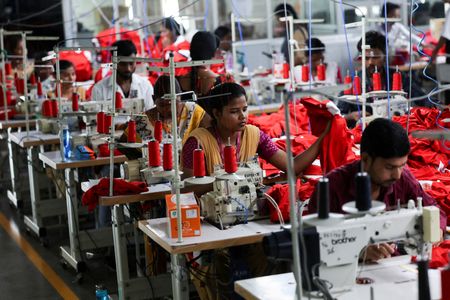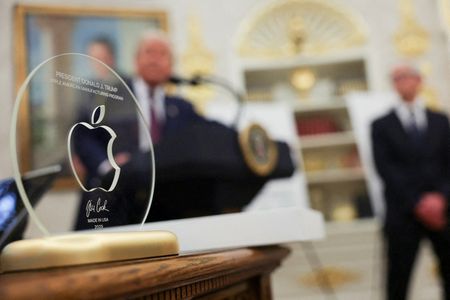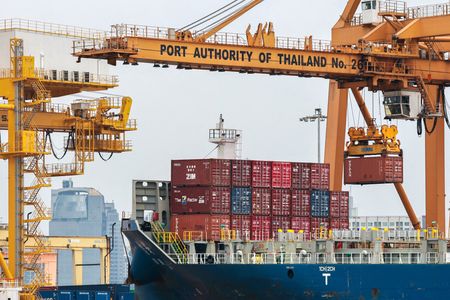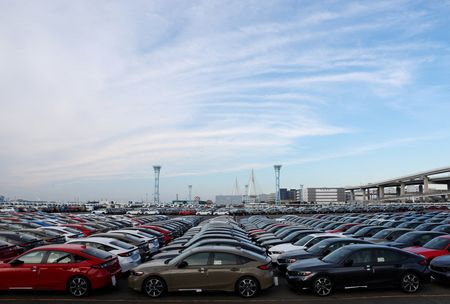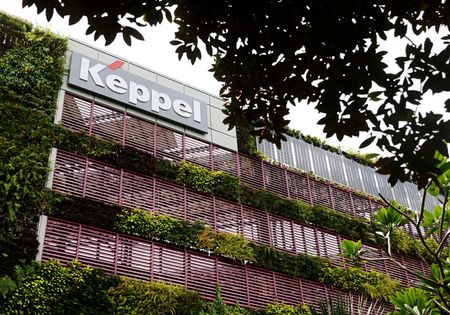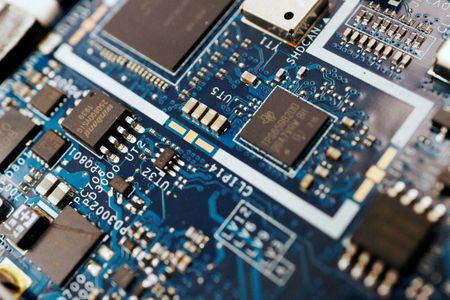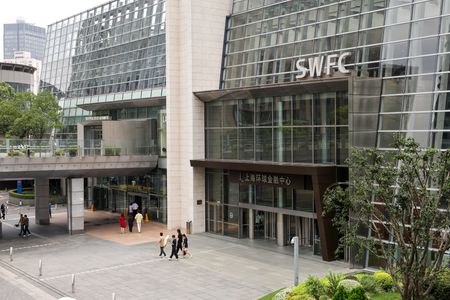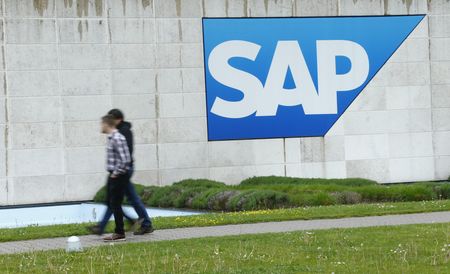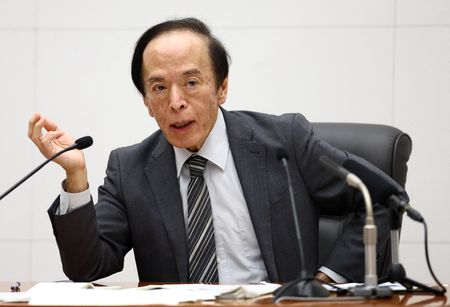(Corrects Toyota’s operating profit forecast to 3.2 trillion yen (not 1.4 trillion yen) in paragraph 10)
By Daniel Leussink and Sam Nussey
TOKYO (Reuters) -U.S. President Donald Trump’s tariffs are cleaving Japan Inc, as some big exporters like Toyota Motor slash their profit forecasts while Sony and Honda are among those saying the impact will be less than they had feared.
As Trump’s levies on global shipments into the U.S. kicked in on Thursday, Japan’s top companies offered a mixed picture of the impact of his signature economic policy and of the stronger yen on his country’s fifth-largest trading partner.
Uncertainty over the tariffs and their erratic implementation have unnerved companies globally as governments work feverishly to strike deals and avert a crisis for their big exporters.
While glimmers of optimism have emerged for Japanese companies, the outlook remains overshadowed by uncertainty over when Trump will lower his tariffs on Japanese automobiles and new questions about duties on pharmaceuticals and semiconductors.
A Trump broadside on semiconductors, with 100% tariffs on some chip imports to the U.S., hit Japanese chip supply-chain firms on Thursday, while shares of companies elsewhere with U.S. expansion plans jumped.
Tokyo urged Washington on Thursday to swiftly implement last month’s bilateral agreement lowering tariffs on U.S. imports of Japanese cars to 15% from the 27.5% in total levies in place since Trump raised tariffs in April.
Two weeks after Trump announced the deal, which he said included $550 billion in Japanese investment and loans in the U.S., Tokyo is scrambling to clarify specifics, complicating business planning for the nation’s biggest firms.
‘DIFFICULT TO PREDICT’
“It’s honestly very difficult for us to predict what will happen regarding the market environment,” Takanori Azuma, head of finance for Toyota, the world’s biggest automaker, said on Thursday.
Toyota cut its operating-profit forecast for the business year to March by 16% to 3.2 trillion yen ($21.7 billion), citing the tariffs and the yen.
The company will keep making cars for U.S. customers regardless of any impact from the tariffs, Azuma told a briefing on the business results.
“Even at this point, incentives are very low and inventory is limited, so many customers are waiting. That’s true not only in the U.S., but also in Japan.”
Japan’s carmakers are among the hardest hit in the trade war as they resist raising prices, squeezing their profit margins.
In contrast to Toyota, Sony raised its full-year profit forecast by 4% to 1.33 trillion yen ($9 billion), with the impact from U.S. tariffs now expected to be 70 billion yen, down from the 100 billion yen it forecast in May.
Subaru Corp said the tariff impact on its vehicles has been reduced but remains significant.
MADE IN USA EXEMPTION
Toyota shares fell 1.5%, while Sony jumped 4.1% and Subaru rose 2.6%.
Honda on Wednesday cut its expected tariff impact by 31% to 450 billion yen but said “there are still many unknowns”.
On chips, Trump offered a big exemption: the 100% tariff will not apply to companies that manufacture in the U.S. or have committed to do so.
While Japan is the largest foreign investor in the United States at $819 billion at the end of 2024, according to U.S. government data, its chip industry has shied away from making big U.S. investments.
Shares of Japan chip-making equipment maker Tokyo Electron fell 2.7% and chip-testing equipment maker Advantest dropped nearly 1% on Thursday. Chipmakers with big U.S. expansion plans, however, jumped, with Taiwan’s TSMC up 5% and South Korea’s Samsung rising 2.5%.
Japan has said the U.S. agreed not to give it a worse tariff rate than other countries on semiconductors and pharmaceuticals.
Tokyo ran a bilateral trade surplus of nearly $70 billion last year on U.S.-Japan trade of nearly $230 billion.
($1 = 147.3100 yen)
($1 = 147.1700 yen)
(Reporting By Sam Nussey and Daniel Leussink in Tokyo; Writing by Anne Marie Roantree; Editing by Miyoung Kim and William Mallard)



